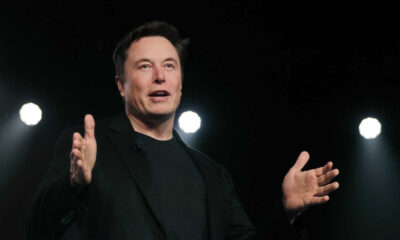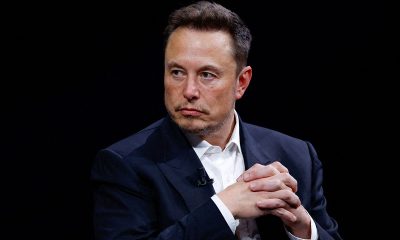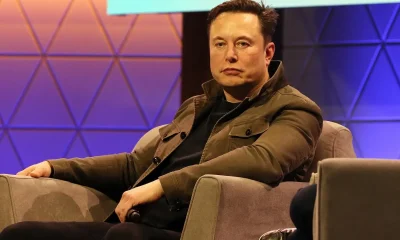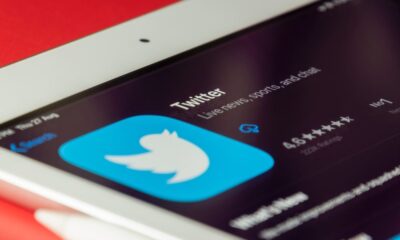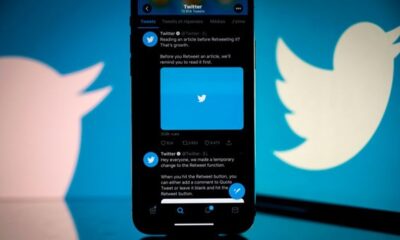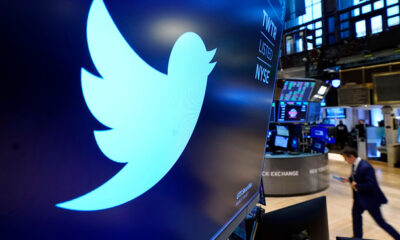International
Twitter users vote to oust Elon Musk as CEO
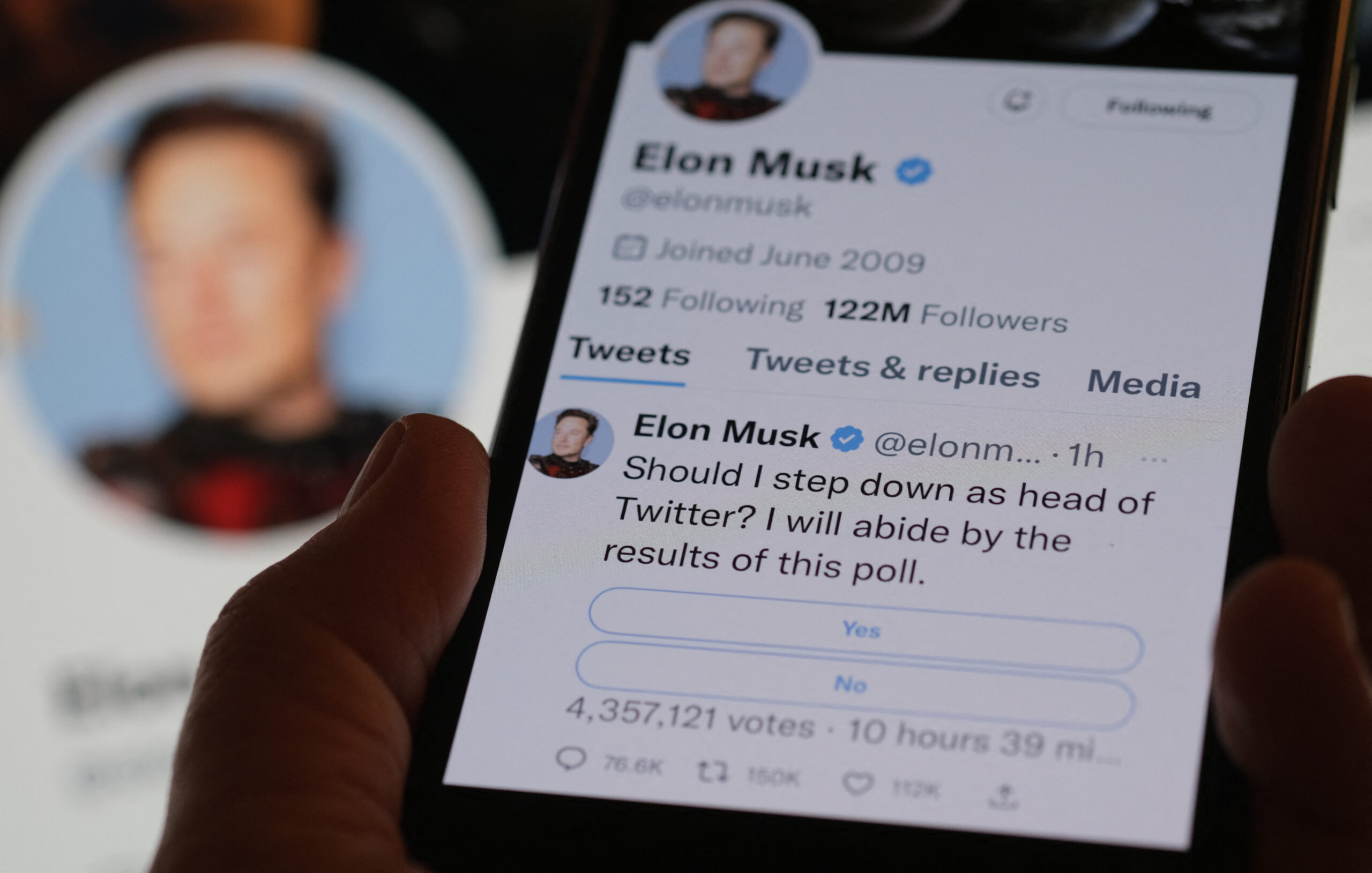
| By AFP |
Twitter users voted on Monday to oust owner Elon Musk as chief executive in a highly unscientific poll he organized and promised to honor, just weeks after he took charge of the social media giant.
A total of 57.5 percent of more than 17 million accounts voted for him to step down. Musk, who also runs car maker Tesla and rocket firm SpaceX, has not yet reacted publicly to the results.
“The question is not finding a CEO, the question is finding a CEO who can keep Twitter alive,” the South African-born billionaire tweeted before the vote closed.
In a response to another tweet, he added: “No one wants the job who can actually keep Twitter alive. There is no successor.”
Musk has fully owned Twitter since October 27 and has repeatedly courted controversy as CEO, sacking half of its staff, readmitting far-right figures to the platform, suspending journalists and trying to charge for previously free services.
Analysts have also pointed out that the stock price of Tesla has slumped by one-third since Musk’s Twitter takeover. The share price briefly rallied by 3.3 percent on Monday before fading.
“It’s hard to ignore the numbers since [the Twitter] deal closed,” tweeted investment expert Gary Black, saying he reckoned Tesla’s board was putting pressure on Musk to quit his Twitter role.
In discussions with users after posting his latest poll, Musk renewed his warnings that the platform could be heading for bankruptcy.
‘Won’t happen again’
Resorting to Twitter’s polling feature has been a favorite strategy of Musk’s to push through policy decisions, including the reinstatement of the account of former president Donald Trump.
Paris-based Reporters Without Borders, which defends press freedom around the world, said the polls were a “crude and cynical” ploy.
“These methods appear to be democratic procedures, but in reality they are… the opposite of democracy,” said the group’s head, Christophe Deloire.
Unpredictable entrepreneur Musk posted his latest poll shortly after trying to extricate himself from yet another controversy.
On Sunday, Twitter users were told they would no longer be able to promote content from other social media sites.
But Musk seemed to reverse course a few hours later, writing that the policy would be limited to “suspending accounts only when that account’s *primary* purpose is promotion of competitors.”
“Going forward, there will be a vote for major policy changes. My apologies. Won’t happen again,” he tweeted.
The attempted ban had prompted howls of disapproval and even bemused Twitter cofounder Jack Dorsey, who had backed Musk’s takeover.
Dorsey questioned the new policy with a one-word tweet: “Why?”
‘Perfect storm’
Musk has generated a series of controversies in his short reign, one which analyst Dan Ives from Wedbush described as a “perfect storm.”
He noted that “advertisers have run for the hills and left Twitter squarely in the red ink potentially on track to lose roughly $4 billion per year.”
Shortly after taking over the platform, Musk announced it would charge $8 per month to verify account holders’ identities, but had to suspend the “Twitter Blue” plan after an embarrassing rash of fake accounts. It has since been relaunched.
On November 4, with Musk saying the company was losing $4 million a day, Twitter laid off half of its 7,500-strong staff.
Musk also reinstated Trump’s account — though the former US president indicated he had no interest in the platform — and said Twitter would no longer work to combat Covid-19 disinformation.
In recent days, he suspended the accounts of several journalists after complaining some had published details about the movements of his private jet, which he claimed could endanger his family.
Employees of CNN, The New York Times and The Washington Post were among those affected in a move that drew sharp criticism, including from the European Union and the United Nations.
Washington Post executive editor Sally Buzbee said the suspension of journalist Taylor Lorenz’s account “further undermines Elon Musk’s claim that he intends to run Twitter as a platform dedicated to free speech.”
Some of the suspended accounts have since been reactivated.
On Monday, the head of the European Parliament, speaker Roberta Metsola, sent a letter to Musk inviting him to testify before the legislature, her spokesman said.
The parliament has no power to compel Musk to turn up, and his response was not immediately known.
International
Claudia Sheinbaum: Operation Against ‘El Mencho’ Was Based on Pending Arrest Warrants

Mexico’s President Claudia Sheinbaum on Wednesday rejected claims that the military operation that resulted in the death of Nemesio Oseguera Cervantes, known as “El Mencho,” leader of the Jalisco New Generation Cartel (CJNG), was carried out under pressure from the United States government.
Sheinbaum explained that the deployment of federal forces was aimed at executing outstanding arrest warrants against Oseguera Cervantes, who was considered one of the most wanted criminals in both Mexico and the United States.
“That was not the objective (to ease pressure from the United States). It is very important, and I want to repeat it. This individual had an arrest warrant, or several,” Sheinbaum said, referring to the operation conducted on February 22.
According to the president, the initial goal was to capture Oseguera Cervantes, but military forces responded after coming under attack during the intervention.
“The operation was to detain him. The problem is that they were attacked — the Secretariat of National Defense — and they responded at that moment,” she said.
The president insisted that the action was not carried out in response to external demands, although she acknowledged intelligence cooperation with the United States.
“It was not done in any way because of pressure from the United States, not at all. Of course, there was intelligence information from the United States that was used specifically,” she concluded.
International
Spain Denies Any Agreement to Cooperate with U.S. Military in Iran Operations
International
White House Says Spain Agrees to Cooperate with U.S. Military After Trump Threatens Trade Embargo

White House Press Secretary Karoline Leavitt said Wednesday that Spain has agreed “in recent hours” to cooperate with the U.S. military, following President Donald Trump’s threat to impose a trade embargo on Madrid.
Trump had warned of potential commercial measures after Spain reportedly refused to allow the Pentagon to use facilities at Spanish military bases for operations related to Iran.
“With respect to Spain, I think you heard the president’s message yesterday loud and clear, and I understand that in recent hours they have agreed to cooperate with the United States military,” Leavitt said during a press briefing.
She added that the U.S. military is currently coordinating with its counterparts in Spain. However, the president expects broader support.
“The president expects that all of Europe, all of our European allies, of course, will cooperate in this important mission — not only for the United States, but also for Europe,” Leavitt said.
Her remarks came in response to questions about Spain’s position and its role as a U.S. ally amid rising tensions surrounding operations involving Iran.
-

 International4 days ago
International4 days agoIran Reports 201 Dead, 747 Injured After U.S. and Israeli Strikes
-

 International3 days ago
International3 days agoBrazil’s Supreme Court Rejects Bolsonaro’s Bid for House Arrest
-

 International3 days ago
International3 days agoAnti-ICE Billboard Campaign Targets Immigration Spending in 31 U.S. Cities
-

 International2 days ago
International2 days agoSpain’s Prime Minister to Address Nation Amid Trump’s Trade Threats
-

 International4 days ago
International4 days agoPope Leo XIV Urges End to ‘Spiral of Violence’ in Middle East
-

 Sin categoría5 days ago
Sin categoría5 days agoTrump: ‘We Think It’s True’ Amid Claims Iran’s Supreme Leader Was Killed
-

 International5 days ago
International5 days agoSecurity Council to Hold Emergency Meeting on Middle East Crisis
-

 International3 days ago
International3 days agoTrump Warns of ‘Major Wave’ of Attacks as Iran Conflict Escalates
-

 International22 hours ago
International22 hours agoWhite House Says Spain Agrees to Cooperate with U.S. Military After Trump Threatens Trade Embargo
-

 International3 days ago
International3 days agoMexico Calls for Immediate Probe After National Dies in ICE Custody
-

 International2 days ago
International2 days agoNew York Announces First 2,000 Seats in Universal 2-K Program
-

 International22 hours ago
International22 hours agoSpain Denies Any Agreement to Cooperate with U.S. Military in Iran Operations
-

 Central America22 hours ago
Central America22 hours agoNicaragua Held Responsible for Harassment of Opposition Prosecutor and His Family
-

 International3 days ago
International3 days agoBolivia Orders Three Investigations Into Deadly Military Plane Crash
-

 International2 days ago
International2 days agoWarner Bros. Developing First ‘Game of Thrones’ Movie With ‘Andor’ Writer
-

 Central America3 days ago
Central America3 days agoPanama Canal Monitoring Trade as Middle East Conflict Disrupts Shipping
-

 Central America2 days ago
Central America2 days agoGuatemala’s Attorney General Fails in Bid for Top Court Seat Amid Corruption Allegations
-

 International22 hours ago
International22 hours agoClaudia Sheinbaum: Operation Against ‘El Mencho’ Was Based on Pending Arrest Warrants































